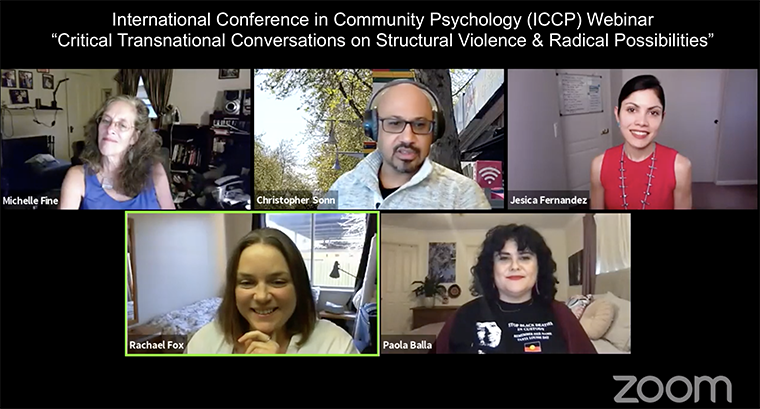| Trouble viewing this email? Read it online. |

| August 14, 2020 | Submit a Note |
 Looking west from the Sobrato Campus for Discovery and Innovation. Photo by Daniel Press
About a week ago, I had the great privilege and delight to put on a hard hat and tour our new Sobrato Campus for Discovery and Innovation (SCDI) construction site. What an amazing, unbelievable building...and it's not even finished! When I was there, 250 construction workers were onsite; that in itself is a sight to behold. Already, there is much beauty in the building, from the French limestone cladding to the tile roof and the terraces looking out to all four directions of the compass. I'm quite sure there is nothing like it for hundreds of miles around, especially when you grasp that this scope and quality focuses so heavily on undergraduate STEM teaching and research. I can't wait for you to see the progress that has been made! As you will see from this edition of College Notes, summer may be quiet on campus, but not in our Bronco community. In addition to all the research you can read about below, I am pleased to announce that, despite the pandemic, we are able to fund 101 Broncos, out of 236 unique applicants, for remote and in-person career exploration through the REAL program. As a way to signal the breadth of the program, I am now changing the REAL acronym to Real Experience. Applied Learning. The mission remains the same:
Beyond the REAL award, the program now encompasses the application portal and onboarding paperwork for numerous awards and with other on-campus partners. One of these is the newly created Vari Italian Studies Fellowship. I am pleased to announce we have selected two students to be the inaugural Vari Fellows, which you can read more about below. Kudos and many heartfelt thanks to Katy Korsmeyer and Michele Parker for all their work and leadership on behalf of the College, REAL, and our numerous undergraduate awards. Best, Daniel Inaugural Vari FellowsThe Vari Italian Studies Fellowship supports outstanding students in Italian Studies at Santa Clara University. Read more about the Fellowship and the two inaugural recipients. 
Grace Lin Cereghino '21Italian Studies and Public Health Science Faculty Mentor: Evelyn Ferraro
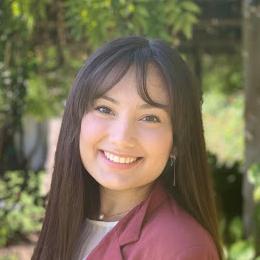
Gabriella Ballardo '21Environmental Studies and Italian Studies Faculty Mentor: Marie Bertola
Highlights
The main theme for this year's festival was "communities near and far," with the goal of celebrating and strengthening the musical communities people have built with networking tools, as well as exploring the aesthetics, performance practice and technologies around topics such as web-streaming, multi-location performance, collaborative music making environments, accessible and sustainable performance practice, and more. SCLOrk performers Tanya Sonker '20 (Computer Science), Josh Mitchell '21 (Physics and Music), Aastha Chawla '22 (Computer Science & Engineering), Luke Nihlen, and Music faculty performed from their homes using the cutting edge JackTrip software to stream high quality, uncompressed sound with low latency over the network. The piece was entirely made of sounds of household objects -- toys, kitchen utensils, music boxes, and whatever else the players could find in their place of shelter.
In June 2020, Janice Edgerly-Rooks' (Biology) documentary won a Northern California Emmy in the category “Health/Science/Environment Feature.” Janice worked with KQED filmmaker Jenny Oh during the Fall 2019 quarter to film behavior of the insects called webspinners in her laboratory in Alumni Science. Titled "The Curious Webspinner Insect Knits a Cozy Home," the video is on the Youtube science channel Deep Look, a collaboration between PBS and KQED, and has garnered over one million views at the time of this report. Numerous SCU undergraduates have assisted in the research that revealed the behaviors displayed in the video: they collected data in the laboratory and field, as well as presented talks and co-authored journal articles. In addition, SCU STEM faculty, including Grace Stokes (Chemistry & Biochemistry), Rich Barber (Physics), Brody Sandel (Biology) and Justen Whittall (Biology), collaborated on investigating the qualities of the insect’s unique silk and spinning behavior.
Connecting census data from the island of Trinidad with images from scanning electron microscopy, Janice Edgerly-Rooks (Biology) and Rich Barber (Physics) published a paper in Environmental Entomology comparing two species of Embioptera (webspinners). Edward Rooks and Samantha Shenoy '02 (Biology) contributed ecological survey data from a range of tropical habitats and elevations. Keilyn Ing '19 (Biology) performed microscopic silk imaging and analysis in SCU's Center for Nanostructures. Although the two species Antipaluria urichi and Pararhagadochir trinitatis are both found on the island, they differ in their distributions across climate zones. Their silks (produced from their front feet to build domiciles) are also different in appearance, both as-spun and after being wetted with rain water. The goal of this study was to establish correlations between the environmental distributions, the silk-spinning behavior and the microscopic structural properties of the silk for these species.
Kimberly Derderian '21 (Neuroscience) presented her research work on a meta-analysis of semantic representations for categorical knowledge at the Annual Conference of Cognitive Science Society (CogSci 2020). Working with Lang Chen (Psychology and Neuroscience), Kimberly has conducted a comprehensive meta-analysis on 113 neuroimaging studies to examine the consistent patterns of brain activations for living/nonliving concepts in order to reveal the cortical semantic network for processing concrete concepts and resolve some theoretical debates on the organizational principles of such network. Their paper has also been accepted for publication in the CogSci conference proceedings.

Iris Stewart-Frey (Environmental Studies and Sciences) is a collaborator on an $35,000 CalEPA environmental justice grant awarded to the Tuolumne River Trust Modesto Office. Parks and green spaces along rivers are important to the health of the aquatic ecosystems, riparian zones, and the surrounding communities. Funding will support work with underserved communities to improve park access and to revitalize the Tuolumne River Regional Park Carpenter Road parcel along the Tuolumne River in Modesto. The SCU subaward portion will fund spatial analysis conducted by undergraduate student researchers, including the development of a virtual park audit and a digital story map. Photo: The Tuolumne River is important for water supplies and represents critical salmon habitat. A section of the Tuolumne River Regional Park in Modesto (photo by I. Stewart-Frey)
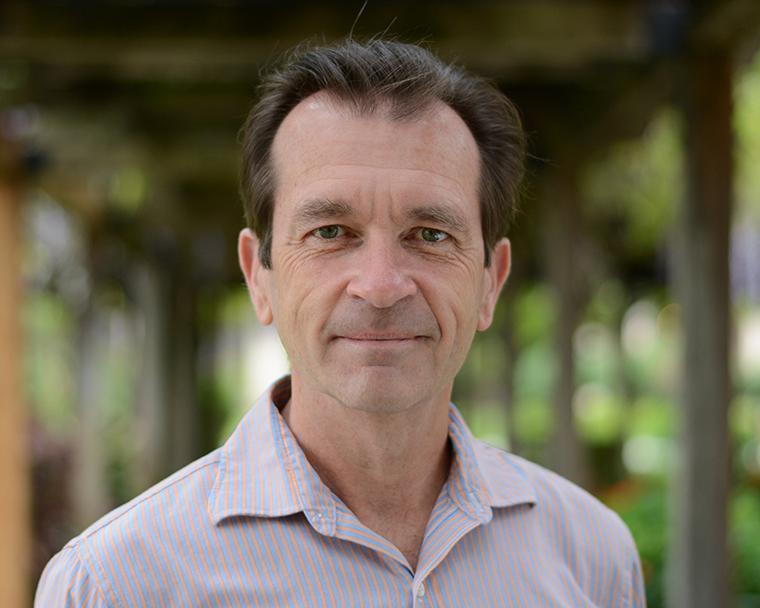
Tom Plante (Psychology) published an article in Current Psychology, "Spanish version of the Santa Clara Brief Compassion Scale: Evidence of validity and factorial invariance in Peru" with Tomás Caycho-Rodríguez, Lindsey W. Vilca, Carlos Carbajal-León, Isabel Cabrera-Orosco, Cirilo H. García Cadena & Mario Reyes-Bossio.
In addition to the webinar, Jesica's chapter "Liberation Psychology of and for Transformative Justice: Centering Acompañamiento in Participatory Action Research," was published in a book volume, Liberation Psychology: Theory, Method, Practice, and Social Justice (Cultural, Racial, and Ethnic Psychology), edited by Lillian Comas-Díaz (George Washington University) and Edil Torres Rivera (Wichita State University). The chapter describes how participatory action research (PAR) aligns with acompañamiento (accompaniment), which within a liberation framework, refers to an intentional act of working with, being with, and witnessing embodied subjectivities communities impacted by systemic oppression. Acompañamiento is a key value that undergirds the role of the researcher in facilitating liberation psychology processes toward transformative justice.
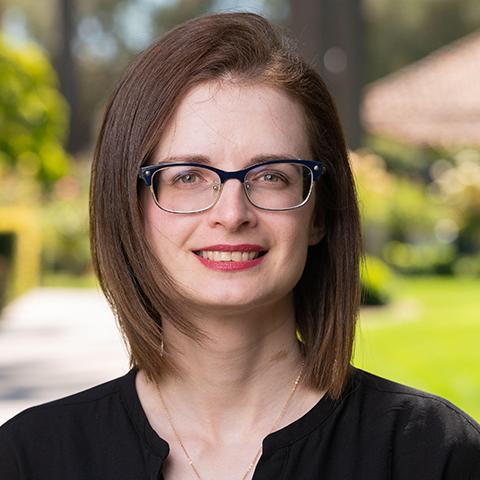
Maggie Levantovskaya (English) published an essay titled "On Flannery O'Connor's Chronic Illness... And Chronic Racism" in LitHub. The essay is about Maggie's journey to engage with O'Connor's lupus story. O'Connor is the only famous American writer to live with and die from the disease. She also wrote about it in her private correspondence. That correspondence includes many poignant observations about lupus. It also features statements that are deeply and unapologetically racist against Black people. Maggie's essay meditates on what it means to hold both of these truths and why an author's racist views cannot be separated from their artistic contributions.

On June 24, 2020, the Northern California Environmental Justice Network and the Environmental Justice & Common Good Initiative at SCU, jointly with the Tuolumne River Trust (Modesto Office), the Environmental Justice Program of Catholic Charities (Stockton), and collaborators at Stanford University and UC Berkeley hosted a listening session for community environmental justice concerns in the northern Central Valley region. Over 60 representatives of 22 community and local government organizations and six academic institutions participated. Panel presentations on community-academic partnerships for environmental justice were followed by discussions in breakout groups that covered six topics: Food access in the context of Covid-19, safe access to parks/open space, sustainable water and climate justice planning, affordable housing & sustainable transportation, air quality and economics & green jobs especially under Covid-19. Common emerging themes were the need for financial support, collaboration, and expertise, the need to follow-up with networking and collaborative effort with the goal of developing long-term partnerships. Iris Stewart-Frey (Environmental Studies and Sciences), Chad Raphael (Communication), Christopher Bacon (Environmental Studies and Sciences), Ed Maurer (Civil, Environmental, and Sustainable Engineering), and Maria Eugenia Flores Gomez, Environmental Justice and Common Good Initiative Research Coordinator, attended for SCU. Photo: Entrance to the city of Modesto downtown area.
College of Arts and Sciences Calendar
|
| College of Arts and Sciences |
Questions? Contact Sandy Boyer |


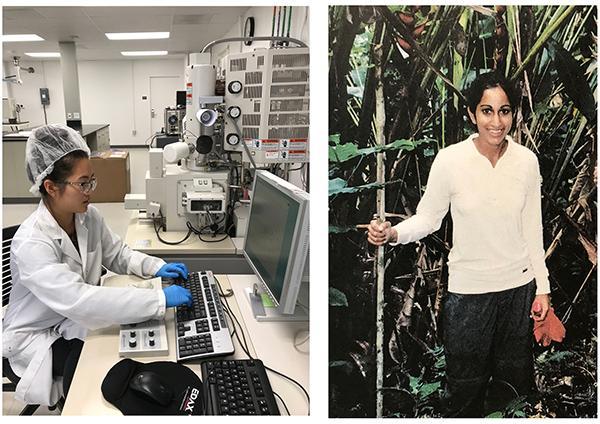 Photo: Keilyn Ing (left) analyzing silk samples at the scanning electron microscope and Samantha Shenoy (right) collecting habitat data in the rainforest of the Northern Range Mts.
Photo: Keilyn Ing (left) analyzing silk samples at the scanning electron microscope and Samantha Shenoy (right) collecting habitat data in the rainforest of the Northern Range Mts.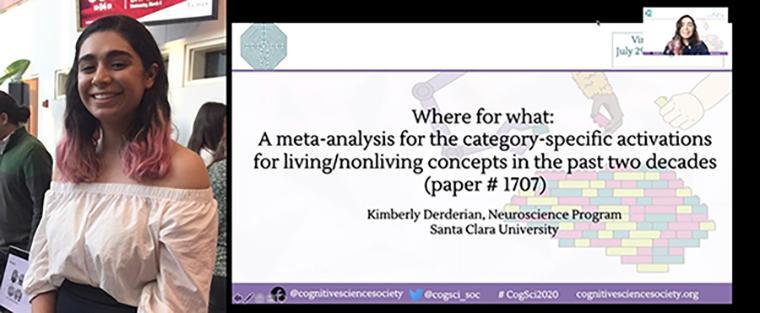 (Left) Kimberly at the presentation of CAS Family Weekend at SCU; (Right) Kimberly presenting her poster at the CogSci 2020 virtual conference.
(Left) Kimberly at the presentation of CAS Family Weekend at SCU; (Right) Kimberly presenting her poster at the CogSci 2020 virtual conference.